Keep your outdoor dishes perfectly moist with these three essential techniques. First, use a reliable temperature control system like ThermoWorks Billows or FireBoard 2 Drive to maintain consistent heat within ±10°F, preventing overcooking. Next, master the art of marination by combining acids, oils, and seasonings while following proper timing guidelines – 4-24 hours for beef, 2-6 hours for chicken, and 15-30 minutes for seafood. Finally, employ strategic foil wrapping by creating well-sealed packets with heavy-duty aluminum foil, ensuring moisture stays locked in. These foundational methods will open the door to countless perfectly cooked outdoor meals.
Monitor Temperature Control Systems
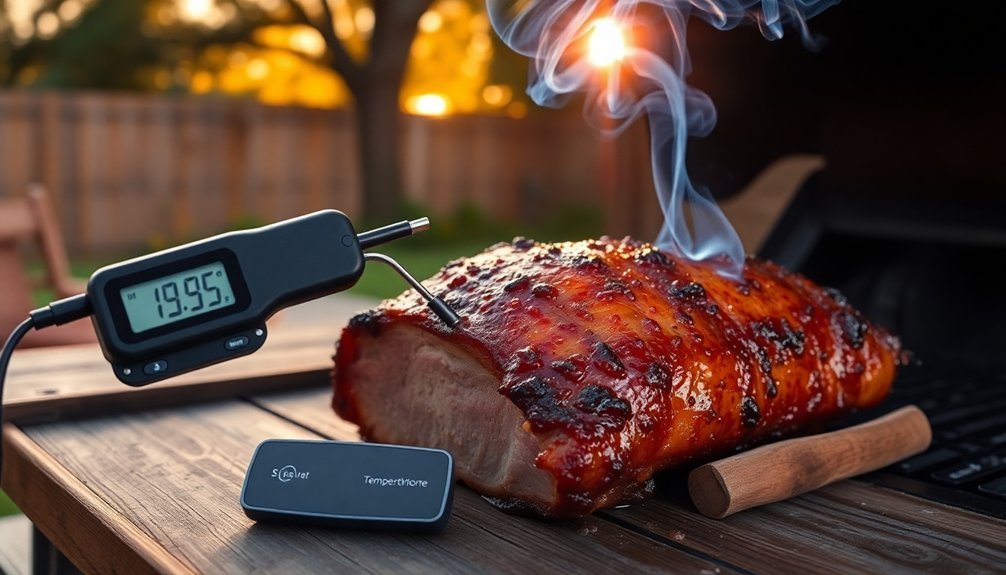
When cooking outdoors, a reliable temperature control system serves as your essential ally in maintaining perfect moisture levels.
You'll want to invest in controllers like the ThermoWorks Billows, FireBoard 2 Drive, or Flame Boss 500 that keep temperatures within a narrow ±10°F range, preventing dry or overcooked meat.
Look for features that'll make your cooking easier, such as open lid detection and variable speed fans. Weatherproof composite construction ensures your temperature control system remains durable in outdoor conditions. These smart systems automatically adjust to maintain ideal temperatures when you're checking your food.
Most controllers offer multiple probe support, letting you monitor both the grill and food temperatures simultaneously. They'll connect to your smartphone via WiFi or Bluetooth, so you can make adjustments remotely.
Thanks to universal compatibility and various mounting options, you can easily integrate these controllers into your existing grill setup.
Smart Marination Methods
Smart marination transforms ordinary cuts of meat into succulent, flavor-packed dishes that'll wow your outdoor guests.
You'll need five key ingredients: an acid like citrus or vinegar, oil to carry flavors, salt for moisture retention, a sweetener for balance, and your choice of herbs and spices.
To maximize flavor absorption, pierce your meat with a fork and guarantee it's completely covered in marinade. You can achieve exceptional results by using fresh herbs for enhanced aroma and taste.
You'll want to use sealed containers or zip-lock bags, and don't forget to flip the meat every few hours.
Remember to follow specific timing guidelines: beef needs 4-24 hours, chicken 2-6 hours, and seafood just 15-30 minutes.
Never marinate at room temperature – always use your refrigerator to prevent bacteria growth.
Before grilling, pat the meat dry and discard used marinade unless you plan to boil it for sauce.
Strategic Foil Wrapping Techniques
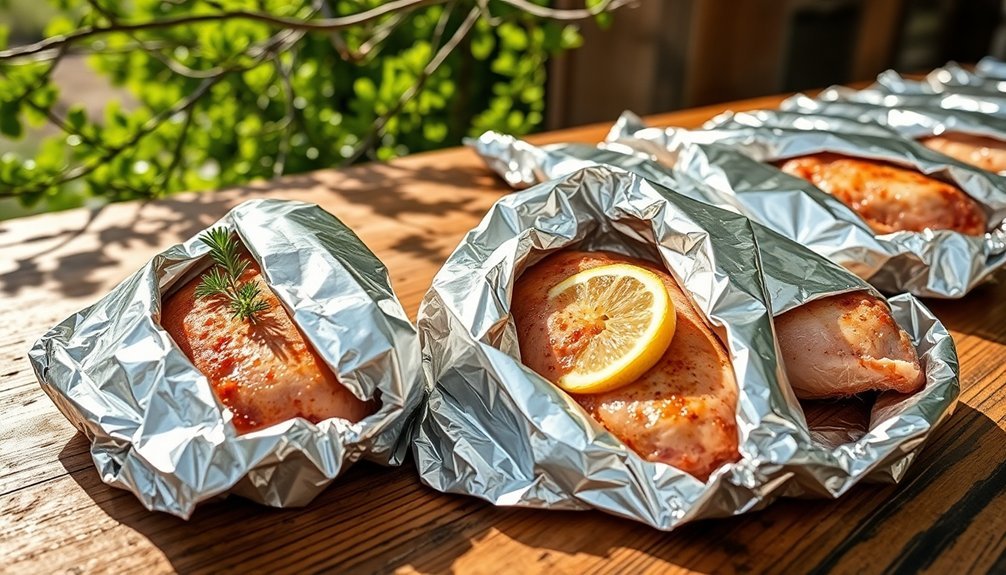
Mastering the art of foil wrapping can transform your outdoor cooking from basic to extraordinary. Start by selecting heavy-duty aluminum foil that's at least 12 inches long, positioning the dull side outward to prevent tears. If you're using lightweight foil, double or triple the layers for added protection.
Place your food in the center, add oil and seasonings, then create a secure packet by folding the foil in half with a 1/2-inch seam. Press firmly and fold twice more for a reliable seal. Don't forget to fold the short edges twice as well. This method draws from ancient cooking practices of wrapping food in leaves and husks.
When cooking, flip your packets every 10 minutes and use tongs for safe handling. For meats, seal tightly to encourage browning, but consider tenting vegetables to allow steaming. Remember to poke a small steam-release hole before opening to avoid burns.
Frequently Asked Questions
How Do You Grill in Windy Conditions Without Losing Heat?
Position your grill perpendicular to wind flow, use windbreaks, face vents away from wind, and maintain fuel levels. Keep the lid closed as much as possible and monitor temperature closely to preserve heat.
Can Marinades Be Reused for Different Types of Meat?
You shouldn't reuse marinades between different meats due to cross-contamination risks. If you must, boil it thoroughly first, but it's safer and more effective to make fresh marinade for each type of meat.
What's the Best Way to Transport Hot Grilled Foods Safely?
Place your hot grilled foods in an insulated container, wrap them in towels, and keep them sealed in your car's passenger area. Always use a thermometer to guarantee they stay above 140°F during transport.
Should Wood Chips Be Soaked Before Adding to Charcoal Grills?
You don't need to soak wood chips for charcoal grills. Dry chips produce smoke immediately, while soaked ones create steam first. If you want extended smoke, use a mix of dry and soaked chips.
How Do You Prevent Fish From Sticking to the Grill Grates?
You'll prevent fish from sticking by cleaning and oiling the grates first, using firm fish with skin on, patting it dry, and coating it with oil. Don't move the fish until it releases naturally.
In Summary
You've now mastered the key elements for keeping your outdoor dishes moist and flavorful. By maintaining precise temperature control, using effective marination methods, and perfecting your foil wrapping techniques, you'll consistently achieve restaurant-quality results. Whether you're grilling, smoking, or cooking over a campfire, these three fundamental strategies will guarantee your food stays juicy and delicious every time you cook outdoors.


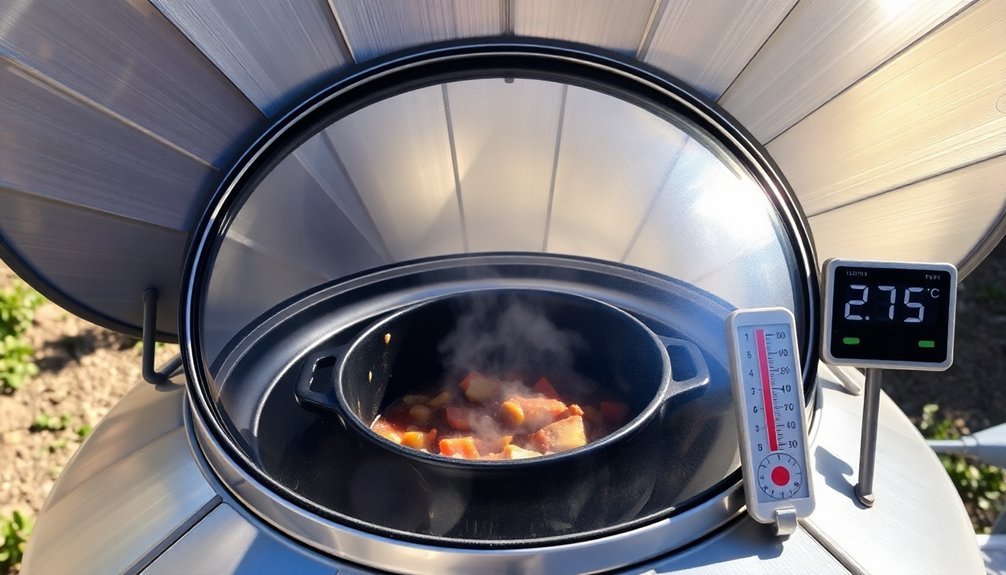
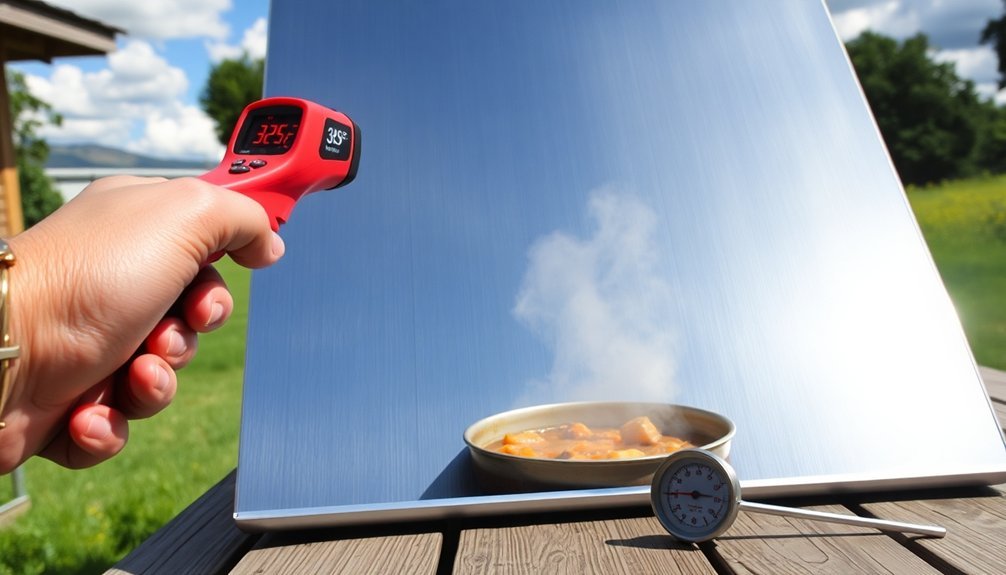
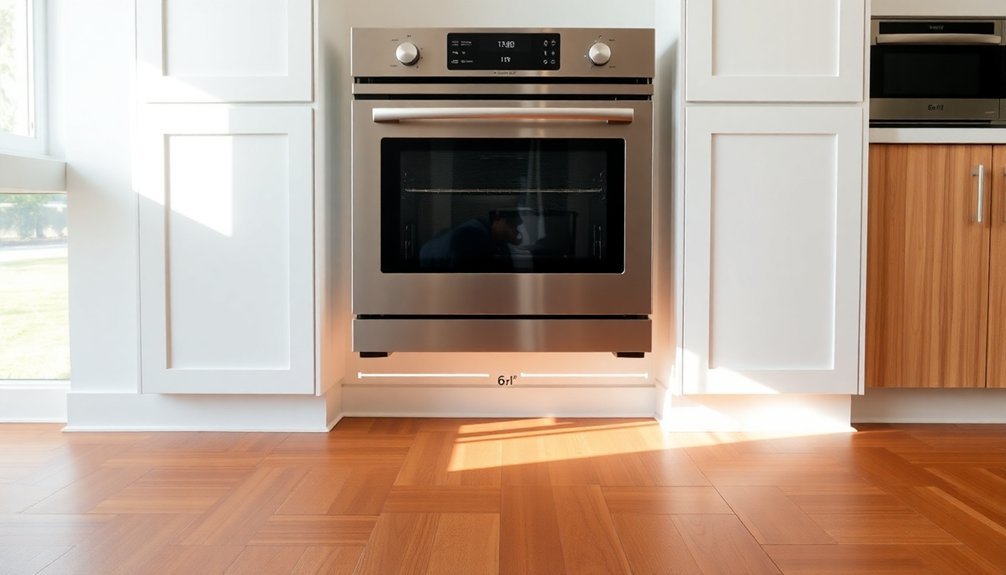
Leave a Reply